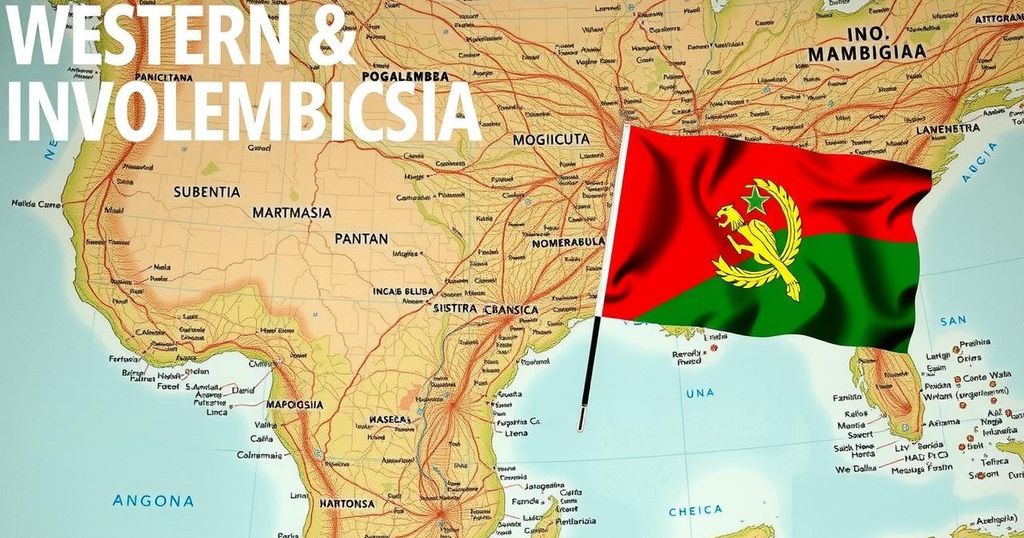The West’s engagement in Angola and Mozambique highlights a troubling trend of prioritizing strategic interests over democracy. Allegations of electoral fraud in both nations, coupled with international support for their leaders, reveal a shift from principled governance to pragmatism. This approach risks entrenched autocracy, undermining the legitimacy of Western influence in Africa.
In recent developments, the United States has elevated Angola’s President João Lourenço to the status of a significant global leader, following his engagement with President Joe Biden. This underscores a troubling trend where strategic interests overshadow steadfast commitment to democratic principles in Africa. Despite allegations of electoral fraud in Angola, the U.S. continues to support Lourenço amidst a burgeoning infrastructure partnership aimed at extracting critical minerals in competition with China.
Similarly, elections in Mozambique have raised serious questions regarding their legitimacy, with Frelimo party’s alleged rigging resulting in an implausible 70.67% victory, as noted by independent observers including the EU Election Observation Mission. The political unrest that has ensued reflects a populace disillusioned by a system that seems increasingly detached from democratic values. Alongside these events, Lourenço has called for political unity in Mozambique, irony not lost on critics of his own government’s electoral practices.
Critically, the West’s current approach, which prioritizes stability and resource extraction over democracy, reflects a marked shift from previous principles of supporting legitimate governance. This strategy not only undermines the prospects for democratic reforms in both Angola and Mozambique but also risks entrenching regimes that prioritize elite enrichment over the welfare of their citizens. Rather than equipping these nations with the tools for a free and fair electoral process, the international community appears poised to endorse a continuation of the status quo, further alienating the very populations it seeks to assist.
Ultimately, the failure to hold genuine elections compounds issues of governance and stability, leaving citizens to contend with the consequences of leadership unaccountable to their needs. The West must recalibrate its approach, choosing to advocate for real democratic values instead of merely supporting governments that align with its strategic interests, lest it continue to lose influence and legitimacy in Africa’s complex political landscape.
The political landscape in Angola and Mozambique highlights a growing concern regarding the West’s engagement in Africa, particularly its tendency to prioritize strategic objectives over genuine democratic support. This situation is set against the backdrop of international competition for resources and geopolitical influence, particularly between the U.S. and China. Allegations of electoral fraud and subsequent political crises further complicate the narrative, necessitating a commitment to uphold democratic standards rather than appeasing illegitimate governments. A historical perspective on Western foreign policy reveals a shift toward pragmatism at the expense of democratic ideals, raising questions about the long-term viability of this approach in fostering stable relations with African states.
In summary, the recent electoral events in Angola and Mozambique underscore a significant deviation from the West’s traditional support for democratic governance. The elevation of strategic interests, particularly in resource extraction, has overshadowed the need for credible electoral processes. The failure to confront issues of electoral legitimacy not only perpetuates cycles of corruption but also undermines the very principles that differentiate democratic nations from authoritarian regimes. For the West to maintain its credibility and influence in Africa, a renewed commitment to democratic advocacy is essential, rather than merely accommodating regimes that cater to immediate geopolitical interests.
Original Source: www.thebrenthurstfoundation.org






